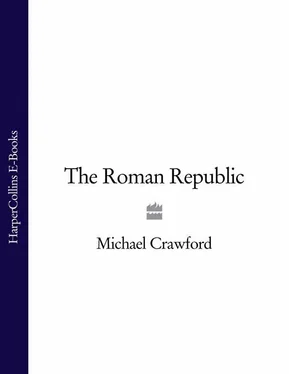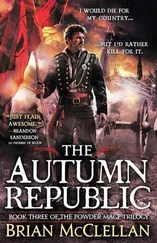Four lesser figures pose problems similar to those posed by Dionysius and Livy and require brief mention. Diodorus of Sicily, writing in the late first century BC, is the author of a universal history from the earliest times down to his own day. His work survives only in excerpts for the period in which we are interested, but possesses one great merit: he was disinclined to do more than copy or paraphrase one source at a time and therefore preserves much good material. The other three historians who concern us all belong to the period of the renaissance of Greek literature in the second and early third centuries AD. Appian, a native of Alexandria in Egypt, wrote a series of monographs (for the most part surviving) on the wars which Rome fought during the Republic; like Diodorus, Appian faithfully reflects his source of the moment; his own comments are of a degree of naivety which sheds an interesting light on the nature of the Roman imperial administration, of which he was a member. By deciding, however, to write not only on Rome’s foreign wars, but also on her civil wars, Appian came in effect to write a continuous history of the last century of the Roman Republic, from 133 to 35; moreover the first book of the Civil Wars contains the only serious surviving account of the agrarian history of Italy.
Plutarch of Chaeronea in Boeotia was a member of the upper class of his community, a wide reader and a prolific writer; among his writings is a series of paired biographies of eminent Greeks and Romans, covering with equal verve half-legendary figures like Romulus and historical figures like Julius Caesar; they are as reliable as their sources and Plutarch’s memory permit. Finally, there is Dio of Nicaea in Asia Minor, an easterner in the Roman senate at the turn of the second and third centuries AD ; an acute and original historian of his own times, his account of the middle Republic survives only in the version of a Byzantine abbreviator and in excerpts; it represents, however, in some cases a tradition not otherwise preserved. Dio’s account of the last generation of the Roman Republic, from 69 onwards, survives nearly intact and is of enormous value.
Fortunately there is other evidence outside the main historical tradition. In the first place, there is a great deal of evidence from contemporary sources of one kind or another which is in a sense free from contamination or distortion, the evidence of public and private inscriptions, of non-historical literature and of archaeology and coins. Outside early Roman history, archaeological evidence is particularly important in allowing us to know far more of non-Roman Italy than the literary sources reveal. At the same time, the development of Roman art under the patronage of the Roman aristocracy is one of the threads of Republican history. The production of the coinage of the Republic was entrusted to young men at the start of their political careers and the types which they chose often reflected the pretensions of their families and their own ambitions. Moreover, as time passed, the coinage of Rome circulated ever more widely, becoming eventually the coinage of a world state. That too is one of the threads of Republican history.
We also possess, for instance, twenty plays of Plautus, produced at the turn of the third and second centuries BC, which provide an extraordinarily vivid picture of Roman society and institutions. The poems of Lucilius, even in the fragmentary form in which they survive, present us with a succession of often savagely satirical vignettes of the aristocracy of the late second century BC.
Finally, Rome’s involvement with the Greek world on a massive scale from 200 onwards resulted in the promulgation there of numerous decrees of the Senate and letters of Roman officials, meticulously inscribed on stone by the communities to which they were addressed; laws of the people and decrees of officials along with treaties are preserved on stone or bronze in increasing quantities as we approach the end of the Republic.
The Romans were also in some respects a highly conservative people, often preserving as fossils, especially in a religious context, institutions which no longer fulfilled any useful function; much interest was shown in them in the first century BC and antiquarians such as Varro were responsible both for recording valuable evidence of this kind about early Roman history and for attempting to elucidate it. Antiquarian evidence of this kind plays a major part for instance in any attempt to reconstruct the development of the Roman assemblies. The evidence of language may also sometimes illuminate the earlier stages of Roman history.
For the last hundred years of the Republic, the amount and the nature of the information available change radically. The voluminous writings of Cicero not only document many aspects of the period of his maturity—roughly from the 80s onwards—but also contain much information on the two generations which precede his own. Sallust, a budding politician of the late Republic, writing in retirement after the death of Caesar, composed two monographs, which survive, on a past which was to him relatively recent and for which good information was still available; they are on the Catilinarian Conspiracy and the Jugurthine War. He also wrote a history of the period from Sulla to 70, which survives only in fragments. Finally, the first book of Appian’s Civil Wars draws on a late Republican source, sometimes identified with Augustus’ acquaintance C. Asinius Pollio; this source in any case paid a degree of attention, remarkable for antiquity, to social and economic factors.
A last word. The history of the middle Republic, as presented to us in the Roman tradition, is despite its diverse origins extraordinarily monolithic; the literary material only occasionally preserves variants, such as the assertion that Remus was not killed by Romulus, or that Rome surrendered to Lars Porsenna of Clusium, or that the Capitol was taken by the Gauls; on the other hand, the epitaph of Scipio Barbatus, inscribed in the late third century BC, preserves a record of campaigns which differs from that in the literary tradition; a tomb-painting from the Esquiline Hill of the same general period records an incident unattested in the literary tradition; coin-types sometimes display an item of family history which did not manage to enter the collective tradition.
In one case, literary and archaeological evidence combine, a version of early Roman history rediscovered by the emperor Claudius from Etruscan sources being confirmed by the paintings of the François tomb at Vulci; the account known to Claudius and the paintings both deal with the adventures of Mastarna, the Etruscan name for Servius Tullius, the sixth king of Rome. This case serves to draw attention to what is perhaps the most serious loss for the historiography of the Roman Republic, the disappearance of the non-Roman tradition. Stray references enable us to perceive that apart from Etruscan, there were once Campanian, even Mamertine ( see here) histories and numerous local traditions on which Cato ( see here), when he wrote his history in the second century BC, was still able to draw. But that history has perished apart from fragments, and the view which our sources present us is almost wholly Romanocentric. It was not always so, and in writing the history of the Roman Republic one must remember that it is the history of Italy as well as of Rome.
BY THE TIME HANNIBAL invaded Italy in 218, the whole of the peninsula was under Roman control with the exception of the Po valley, inhabited by Gauls and known to the Romans as Cisalpine Gaul. Much of the process was already complete by 280, when Pyrrhus invaded Italy from Epirus; many of the crucial steps were taken in the years immediately following 338, the end of the last war between Rome and her immediate neighbours, the other cities which were like Rome of Latin race and language.
Читать дальше












